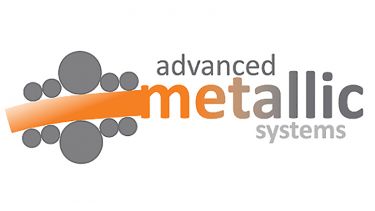Ömer Koç has recently completed his PhD investigating the effects of proton irradiation on Zirconium alloys, a critical aspect of nuclear power generation. His work will have a meaningful impact on the future of nuclear power, helping to meet carbon emission targets through the provision of safer, cost-efficient energy solutions.
The understanding of irradiation damage, contributing to cleaner and more efficient nuclear energy has been advanced through collaboration with the EPSRC funded MIDAS project. The research completed forms a bridge between academia and industry, facilitating the translation of fundamental insights into real-world solutions.
The global demand for carbon-free energy has found traction in the nuclear field and is garnering significant attention. Zirconium, a fundamental component in nuclear reactors, serves as the primary material for fuel rods, facilitating nuclear reactions more efficiently than its alternatives due to its superior properties. It is therefore imperative to comprehensively understand everything that happens to the zirconium fuel rods during the lifespan of fuel burning. This is crucial to the enhancement of power generation through increased fuel burn-up.
Ömer’s work delves deep into the exploration of the formation of atomic-scale defects (dislocation loops) and the reorganisation of solute elements within zirconium to enhance its properties through alloying. An area he explored in particular is Irradiation-Induced Growth (IIG), a phenomenon that entails the elongation of (approx 4 metre long) fuel rods without application of external force.
Ömer’s findings provide valuable insights to the microstructure development under proton irradiation, especially during the initial stages of radiation exposure. They underscore the suitability of proton irradiation as a viable surrogate for simulating in-reactor neutron irradiation damage, which is important as samples can be challenging and costly.
The impact of this work is immediate, driven by industry-related inquiries. It will significantly improve the effectiveness and efficiency of the utilisation of nuclear fuel, which in turn creates further opportunities for cleaner, more cost-effective, and safer nuclear power generation, making a meaningful contribution to the achievement of reduced carbon emission targets.
“The Advanced Metallic Systems CDT provided unwavering support throughout my PhD journey. The enriching classes, elements of personal development programs, industry visits, and, perhaps most importantly, being part of a cohort, were tremendously beneficial. Moreover, the support from all the members of the zirconium research group, based at the Henry Royce Institute Hub, with its breathtaking view of Manchester, created an ideal environment for scientific pursuits. The friendships and assistance from some of the brightest minds in the field made my time during the PhD both enjoyable and highly productive.”
Ömer Koç
Ömer Koç recently completed his PhD at The University of Manchester as a member of the Advanced Metallic Systems CDT. Ömer's PhD project, Proton irradiation-induced microstructural evolution in Nb-containing and Nb-free Zirconium alloys and its effect on mechanical properties, was conducted as part of the EPSRC-funded MIDAS project, focused on gaining a mechanistic understanding of irradiation damage in fuel assemblies. This collaboration involved multiple UK and international research institutions. Before embarking on his PhD journey, Ömer worked as a scientific programs expert at the Turkish academic research funding body (TUBITAK) from 2014 to 2018. He holds a Master's degree in Metallurgical and Materials Engineering from Middle East Technical University (METU) in Turkey, where he also completed his bachelor's degree in the same department and at the same university in 2013.
EQUIPMENT ACCESSED:
- Dalton Cumbrian Facility - Proton accelerator for irradiation experiments
- Deutsches Elektronen-Synchrotron (DESY) / Germany - Synchrotron experiments
- Thermo Scientific Talos TEM, MECD, University of Manchester
- FEI Helios plasma-FIB with cryo-stage, PSI, University of Manchester
- Rigaku SmartLab tabletop diffractometer, MECD, University of Manchester
- FEI Helios NanoLab 600i Focussed Ion Beam, MRF, UKAEA


